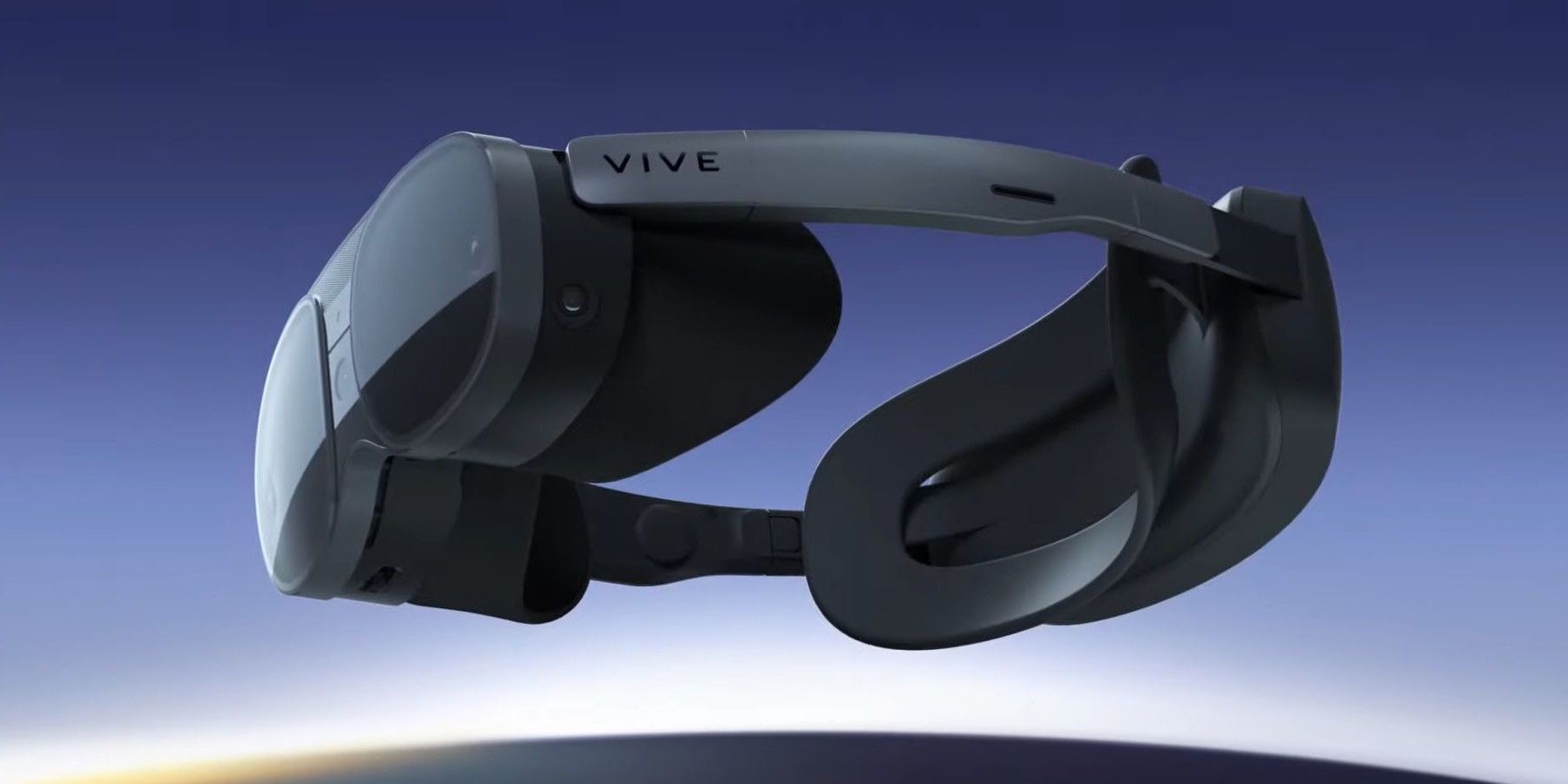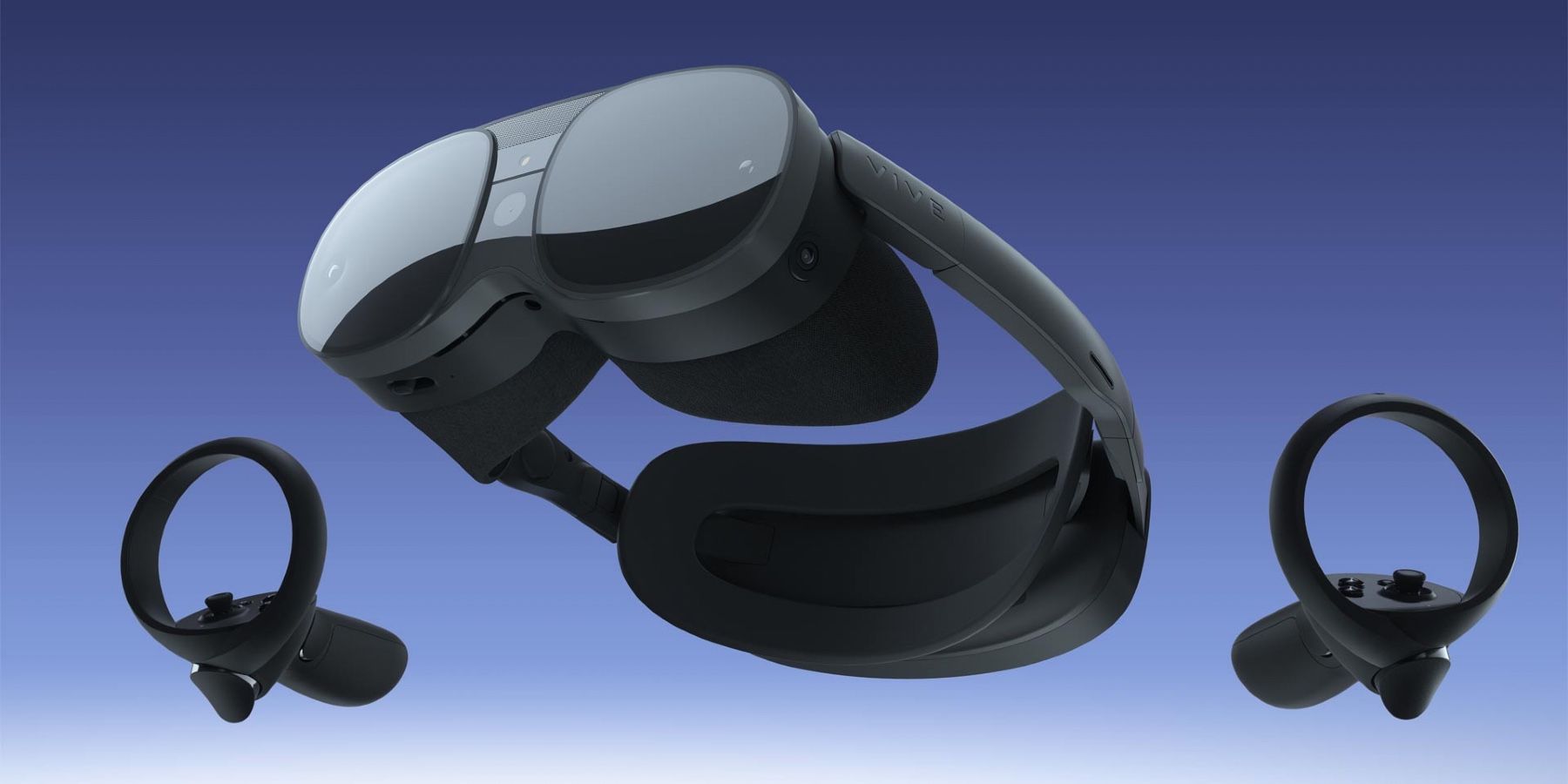The HTCVive XR Elite was announced at CES 2023 as a virtual/mixed reality headset with an impressively small form factor, but a disappointingly large price tag. CES is home to some of the biggest tech announcements of the year, and a new headset from HTC was teased prior to the event. Rumors had the price around $1,400 USD, which would place the device slightly below the recent Meta Quest Pro's $1,500. Now that the XR Elite has been officially announced, its price falls below the rumors, but it's still far above where it should be.
VR has been in a drought the past couple of years, with minor hardware innovations leaving juggernaut Meta with little-to-no competition. In the standalone VR space, Quest 2 has remained untouched until the Pico 4 released in October 2022 as a true alternative thanks to a comparable price of roughly $425 USD. With the HTC Vive XR Elite, the company looks to capture more of that standalone market share. However, even with the XR Elite's advanced features and impressive form factor, its $1,099 price makes it a difficult sell for most consumers.
HTC XR Elite Features and Price Explained
HTC has been making VR headsets since 2016, when it released the original Vive in collaboration with Valve. With the XR Elite, HTC improves upon its previous hardware in many ways. At roughly 625 grams, the XR Elite has technical specs slightly above the Meta Quest 2 but weighs nearly 25 percent lighter. This is achieved in-part by its use of thinner pancake lenses and HTC's decision to move the battery to the back of the head strap, acting as a counterbalance to help with weight distribution.
The HTC XR Elite falls somewhere between the Quest 2 and Quest Pro in terms of its specs, features, and functionality. It includes a Qualcomm Snapdragon XR2 processor, 1920x1920 per-eye resolution (3840 x 1920 pixels combined), 90Hz refresh rate, up to 110-degree FOV, 12 GB of memory, 128 GB of storage, and Wi-Fi 6 + 6E. The XR Elite also has a depth sensor for improved mixed reality experiences and allows users to connect to a PC either wirelessly or via USB-C cable for PCVR gaming.
Standout convenience features include a foldable design and a magnetic faceplate, along with IPD and diopter dials that provide easy adjustment for different eye positions and prescriptions. The diopter allows those who wear glasses the ability to experience clear visuals without them, although the range of this adjustment doesn't go beyond -6. There is also a USB-C port on the bottom of the headset for external add-ons like an accessory adding face and eye tracking for the Metaverse.
Despite all the smart design choices and impressive features of the XR Elite, the device is soured by the fact that the HTC XR Elite costs nearly three-times more than a Quest 2. At $1,099, one might think that the device would compete with the Quest Pro, but seeing as the XR Elite is aimed at consumers and the Quest Pro is meant for businesses, the price is simply too high. The Quest 2's $399 starting price puts it more in-line with a game console, which is digestible to a mainstream audience.
The small size of the XR Elite is certainly its major selling point, along with HTC's stance on data privacy - reiterating in its announcement that it is not interested in selling anyone's personal data. This is a clear jab at Meta, as the company continues to receive scrutiny regarding its selling of personal data to advertisers for monetary gain. This is becoming increasingly important for many users, so even at its high price, it could be reason enough for some to choose HTC over Meta.
The HTC Vive XR Elite is expected to release in February 2023.





